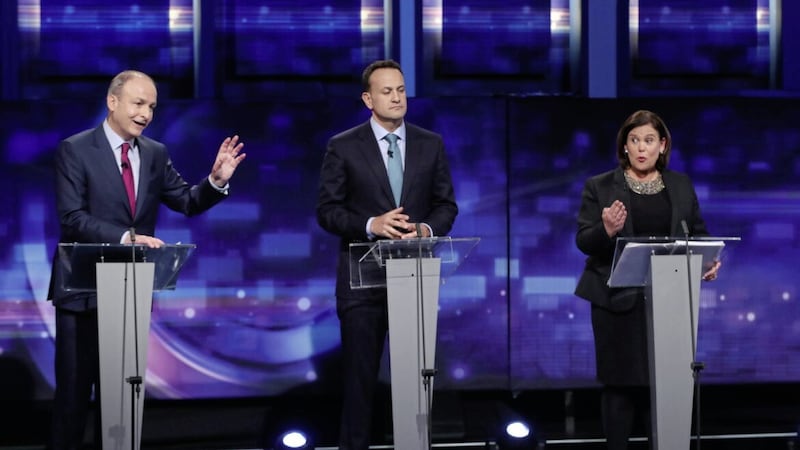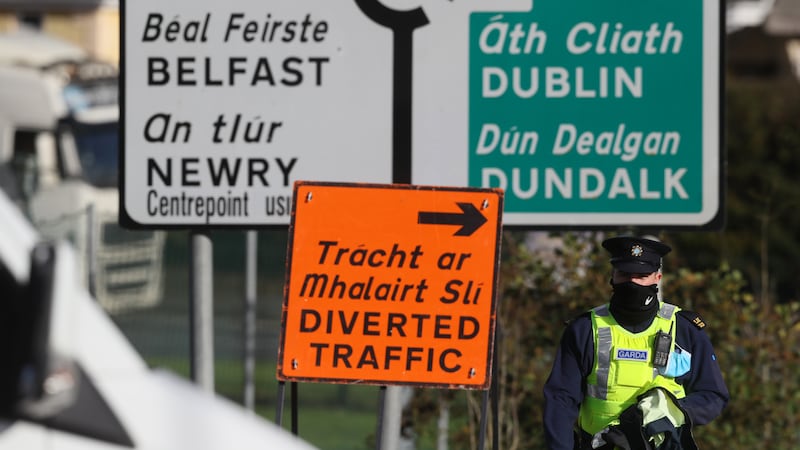WHEN Tánaiste Micheál Martin was asked recently if Fianna Fáil would enter a coalition with Sinn Féin, he rejected the idea. Sinn Féin, he suggested, is not your everyday political party.
He had a point, but an equally valid point is that neither was Fianna Fáil when it was formed. Indeed it might reasonably be argued that SF and FF are remarkably similar in terms of history, politics and populism.
The main difference is that while FF is in electoral decline, SF’s fortunes are on the up. It looks likely to replace its elder sibling as that specifically Irish phenomenon – a party with no discernible political ideology, apart from a touch of the-boys-of-the-old-brigade syndrome and a bit of, “Ah sure, aren’t things just grand?”
Welcome to a re-run of modern Irish history.
Read more:
- Patricia Mac Bride: Is Micheál Martin's Fianna Fáil still interested in reunification?
- Jake O'Kane: While Leo Varadkar and Jeffrey Donaldson make Irish unity a matter of life and death, the Republic is awash with billions and winning the economic battle
- Has the Northern Ireland protocol undermined the union? Alex Kane and Brian Feeney debate
Both FF and SF were born out of violence. FF was an unintended by-product of the Civil War and SF was a planned product following the sectarian reaction to the northern civil rights movement.
Both periods of violence were claimed as preserving the soul of the Republic, but neither pursued the political ideals of 1916. They just copied its violence and ignored the politics.
Although both split from the then mainstream SF, both claim to be “the republican party”. Today they try to out-republican each other with their claimed commitment to a united Ireland. Meanwhile, FF ignores its appalling southern housing record and SF ignores its shameful northern housing record. (Apparently republicanism does not do housing.)
Both began their political lives in professed political purity, which they then abandoned. (As St Augustine said, “Lord, make me pure, but not just yet”.)
FF pledged not to promise fidelity to the King, but then said the oath was only signing a piece of paper.
Provisional SF opposed taking seats in the Dáil or Stormont and now it is deeply embedded in what it used to call two partitionist parliaments.
When both parties gained power, their first action was to take control of the police.
On entering the Dáil, de Valera took six years to recognise the legitimacy of the Garda, which he then shaped in his own political interests.
Read more:
- Patrick Murphy: Religious sectarianism largely ended with the Good Friday Agreement – which replaced it with political sectarianism
- Patrick Murphy: Nationalism has lost its way
- Patrick Murphy: To clean up Lough Neagh, we need to clean up politics
It took eight years from entering Stormont for SF to do the same with the PSNI. Both parties then used the law against their former colleagues who had failed to follow them into government.
In politics, FF advocated economic isolation. It took its ideas from Arthur Griffith (who placed nationhood above politics), Thomas Davis (who wrote A Nation Once Again), Pope Leo XIII (who said “in God’s sight, poverty is no disgrace”) and, surprisingly, an 18th century Church of Ireland bishop, George Berkeley, who believed that if Ireland could surround itself with a “wall of brass”, it could be self-supporting.
It was a policy which meant that poverty became the patriotic duty of the working class. That theme is echoed today in the north where one in six people are food insecure and 700,000 await medical treatment.
Even though FF abandoned economic nationalism in the 1960s in favour of EU membership, the first political statements from the newly formed Provisional SF in 1970 were similarly isolationist. As the PIRA began its northern economic war, SF’s Eire Nua of 1971 pledged not to join the EU “power block”.
Thirty years later it reversed its policy and followed FF’s populist pathway. It was an electoral success. Having stolen the SDLP’s clothes in the north, it did the same to FF in the south.
At the 1933 FF Ard Fheis, de Valera said that any Irish woman wearing foreign clothes should be ashamed. Today both FF and SF take their political clothes from the same wardrobe in Brussels.
So if FF and SF finish up in government together (which is possible), it will not just be a coalition of parties, more a coalescence of politics in terms of values, ideas and ideals in one united republican party. Now won’t that put the fear of God in Britain?








